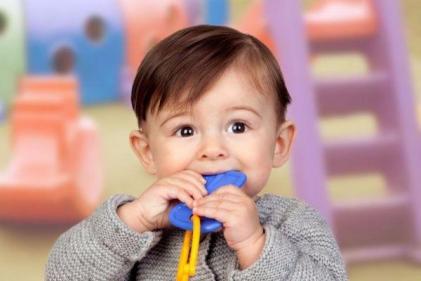You’ve made it through your child’s second birthday now and she is on her way to becoming a preschooler! Hard to believe it, right? Now at 25 months of age, your child wants to do more things without your assistance. Don’t worry though; there are still plenty of times when she needs mum and dad.
Your Child’s Development
By month 25 your child may be using as many as 50 single words and be able to construct two word sentences like ‘baby throw’. She may also be able to understand two step commands such as ‘please get your coat and bring it to me so I can put it on for you.’ You can probably understand what she is saying about half of the time but don’t expect her to always make sense until she is about four. If your toddler isn’t meeting these speech milestones, try not to worry as long as she is making developments in her speech then this is perfectly normal.
Your 25 month old will have a bubbly personality and a vivid imagination. An unfortunate outcome of this vivid imagination can be fear. You may discover that all of a sudden your outgoing little girl is now afraid of certain people and situations that she was not previously afraid of, like going to the doctor. Why did this suddenly happen? At this age, your child will now conjure up mental images from their imaginations. Combine that with the fact that they will also be able to recall memories – like getting a shot at the last doctor’s visit – and you get a fearful child.
To help quell your child’s fear of the doctor’s office, you should take the time to discuss the visit with her ahead of time. Go into detail about exactly what will happen and never tell her it won’t hurt if it will. If she has to get an injection, explain to her why she is getting the shot and tell her that it will hurt just a little bit, as if she were getting pinched. The idea is to be honest and to educate your child why the shot is necessary. Most likely, an injection will bring about some tears even if you do everything you can to prepare your child for it. But, if you stay upbeat and reassuring, the pain will be less traumatic and perhaps the next visit to the doctor will not be as scary to your child.
Your child may also be showing signs of being ready for potty training this month. You should watch for these signs which will indicate if she is ready:
- Willingness to use the potty when asked or on her own, even if nothing happens when she sits on it.
- Being able to tell you when she needs to use the potty, although she won’t always notice in time.
- Having longer periods of dryness during the day and waking up from her nap dry.
The important thing to remember is not to push your child too hard as this almost always backfires. Praise your child for any successes and wait until they have completely mastered daytime dryness before starting on night time training.









